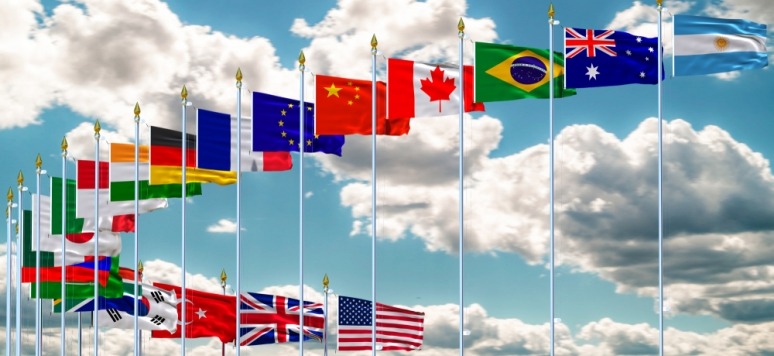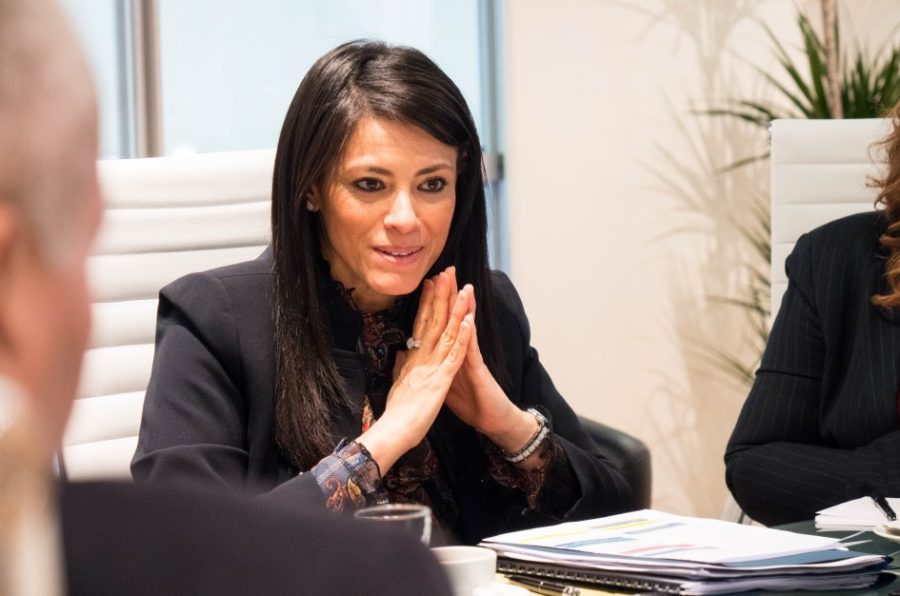Recently, Egypt’s Minister of International Cooperation Rania Al-Mashat participated in a LinkedIn live webinar series looking into female empowerment and leadership in 2020. With over 5,600 viewers from across Europe, the Middle East, and North Africa, Al- Mashat, being the influential role model and youngest minister to hold office, spoke about her story, her own experiences, and perspective on leadership.
Her personal narrative, one that she has spoken of with the American University in Cairo (AUC) where she graduated in 1995 with an Economics degree, are the 4C’s or rather the four pillars of success. During AUC’s centennial celebrations, Al-Mashat was interviewed and said that her 4C’s are competence, confidence, connections and charm.
“I believe that these 4C’s started for me here at AUC and throughout my career, I worked hard to continue being confident, build my connections, stay competent in a subject matter I am good at, and always deal with everyone in a charming way,” she told AUC.
In 2013, Al-Mashat was given the Distinguished Alumni Award from AUC, and in 2014, the World Economic Forum named her a “Young Global Leader”. She was also named as one of the 50 most influential women in the Egyptian economy in 2015.
Hearing what Al-Mashat has to say about future leaders, and the advice she has to give is a lesson worth listening to. For her, part of being successful has to do with expanding one’s interests and not being specifically confided to a profession or place. Diversifying and gaining skills along the way is all part of the journey.
And leadership itself is a journey, she says. Al-Mashat shared that this particular journey needs ‘intention’, ‘authenticity’, and ‘being present’.
“There will be tough times; and the advice I give is three things: to set your intention, be very authentic in what you do, and here comes the idea of passion, and thirdly, be present in every moment” she said.
With her experiences, Al-Mashat is truly an icon when it comes to leadership and success in governance. Her personal development and life experiences led her to a professional career in central banking, to designing monetary policies, and to holding several positions in public office.
During this particular session, she focused on “International Cooperation Global Partnerships Narrative”, and what she thinks the future holds considering current economic situations.
On “Economic Diplomacy” Through International Cooperation
Al-Mashat sees that because no country can remain isolated, interconnectedness of all societies is necessary and can be achieved through international cooperation. She explained that multilateralism, which is when at least three governments come together to solve an issue, is key when it comes to building a more resilient and better recovery.

Interestingly, the Ministry of International Cooperation had launched a multi-stakeholder plan in April this year in dealing with COVID-19. The plan looked to improve collective action between multilateral and bilateral development partners, and ensure that ministers are not only mitigating COVID-19’s impact, but also working on an outcome-oriented future.
In light of the plan’s launch, the ministry had organized several participatory workshops in health, women economic empowerment, public enterprises, private sector engagement in development, rural and agricultural development, transportation and social safety nets.
The point of many of these efforts is to showcase collaborative effort between the public and private sectors in the sense that a circular economy can reinforce existing multilateral efforts.
Communication Is Key
It’s important to consider that communication is also the cornerstone of diplomacy, as Al-Mashat had explained. She said that communication has evolved with smartphones, social media, and the internet.
In turn, this gives policymakers today many opportunities to inform and connect with the general public and mobilize communities to advocate and be part of Egypt’s development work, Al-Mashat said.

Part of being able to communicate well comes with utilizing all the possible channels, which is what the ministry did with “The Global Partnership Narrative” that aims to prioritize and strengthen cooperation among development partners for the achievement of UN’s Sustainable Development Goals (SDGs). Essentially, “The Global Partnership Narrative” came amid fears from the UN that their SDGs would be overlooked due to COVID-19; however, Al-Mashat explained that COVID-19 should not derail development efforts, as per Egypt Today.
“Egypt entered this crisis with very strong fiscal and foreign reserve buffers because of the reforms that were implemented between 2016 and 2018. Countries aren’t just judged by their GDP, but also through their own developmental story. Multilateralism helps create a platform where each country can participate and have a voice in development,” Al-Mashat expressed.
In all cases, “The Global Partnership Narrative” focused on three pillars: People at the Core, Projects in Action, and Purpose as the Driver. As expected with Al-Mashat’s views on communication, the ministry utilized different communication channels with the general public, international community, and multilateral and bilateral development partners.
Alongside this, the ministry conducted an ‘Official Development Assistance – Sustainable Development Goals Mapping’ framework that aligned all current, effective projects with the relevant SDGs for the sake of effective development and cooperation.
Overall, communication and general cooperation within and across countries is necessary for development and moving forward.




























